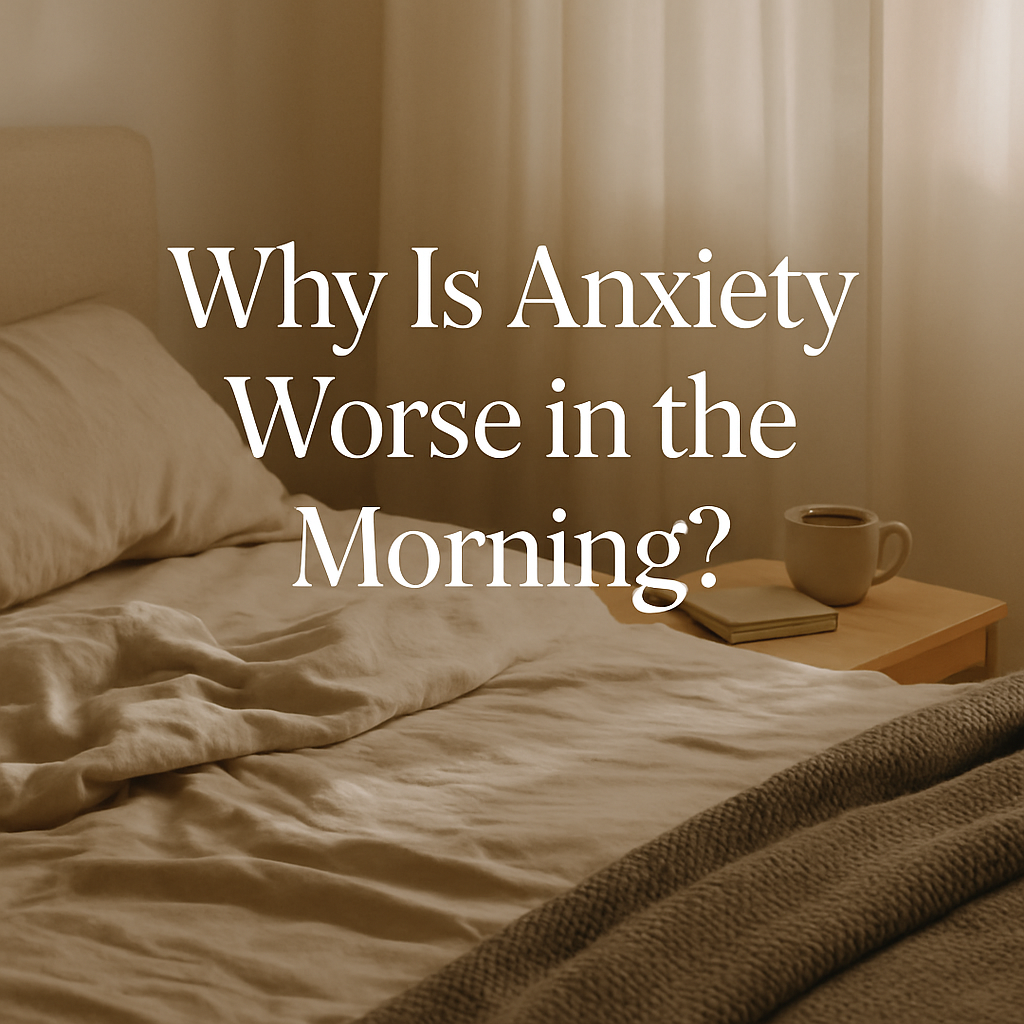
Why Is Anxiety Worse in the Morning? 7 Root Causes and How to Feel Calmer Fast
Share
Introduction
Ever wake up with a racing heart, tight chest, or sense of dread—before your feet even hit the floor?
You’re not alone. Morning anxiety is a real, often misunderstood experience. And while anxiety can strike at any time, for many people, mornings are the hardest.
But why?
In this post, we’ll unpack the 7 most common reasons anxiety is worse in the morning, and offer practical, calming tools to help you feel more grounded before the day even begins.
What Is Morning Anxiety?
Morning anxiety isn’t an official diagnosis, but it describes anxiety symptoms that appear or peak shortly after waking. Common signs include:
-
Racing thoughts
-
Tightness in chest
-
Elevated heart rate
-
Nausea or stomach tension
-
Catastrophic thinking (e.g., “I can’t do this today.”)
If this sounds familiar, read on.
7 Reasons Anxiety Is Worse in the Morning
1. Cortisol Levels Peak in the Morning
Cortisol, your body’s main stress hormone, follows a diurnal rhythm. It spikes naturally between 6–8 a.m. to help you wake up—but for anxious minds, this can trigger panic or hyperarousal.
Quick tip: Wake slowly. Try gentle movement, hydration, or dim lighting first thing to soften the cortisol spike.
2. Sleep Quality Was Poor
Anxiety and sleep have a two-way relationship. Restless sleep, nightmares, or insomnia can leave your nervous system frayed, making you more vulnerable to anxiety upon waking.
Consider using weighted blankets or listening to sleep stories to improve deep rest.
3. Anticipatory Stress About the Day
Your brain often begins problem-solving the moment you wake up. If your days feel overwhelming, your mind might rehearse everything that could go wrong—triggering anxious spirals before you even sit up.
Create a "brain dump" journal at night to offload tomorrow’s worries and reduce mental clutter in the morning.
4. Blood Sugar Is Low
Overnight fasting can cause blood sugar to drop, which affects mood-regulating hormones and mimics anxiety symptoms like shakiness, irritability, or dizziness.
Try eating a balanced breakfast with protein, fiber, and healthy fat within 30–60 minutes of waking.
5. You’re Waking Up with Negative Thought Loops
People with anxiety often experience negative automatic thoughts first thing in the morning—like “I’m already behind” or “I won’t get through this.” These thoughts can feel like truth, but they’re distortions.
Learn to challenge anxious thoughts using CBT techniques like thought reframing.
6. Social Jet Lag or Irregular Sleep Schedules
Staying up late or sleeping in on weekends throws off your circadian rhythm. When your body and brain are out of sync, it can increase stress responses in the morning.
Stick to a consistent sleep/wake time—yes, even on weekends.
7. No Morning Routine (or a Stressful One)
Jumping out of bed and straight into emails, parenting, or your to-do list can spike adrenaline. Mornings with no buffer = more anxiety.
Create a calm morning routine—even 10 minutes of stretching, light, or breathing can anchor your nervous system.
Internal & External Link Suggestions
Internal:
External:
Conclusion
Morning anxiety is real—but it’s not unbeatable.
When you understand what’s happening in your body and mind first thing in the morning, you can meet it with calm, not panic. Over time, small changes—like eating sooner, waking slowly, or creating a 10-minute morning buffer—can shift your mornings from chaos to calm.
And remember: You don’t have to “fix” your anxiety by sunrise. You just have to meet yourself where you are, and begin again—one morning at a time.
